Thousands of people have strengthened their skills to identify deceptions and myths about migration, thanks to IOM campaigns
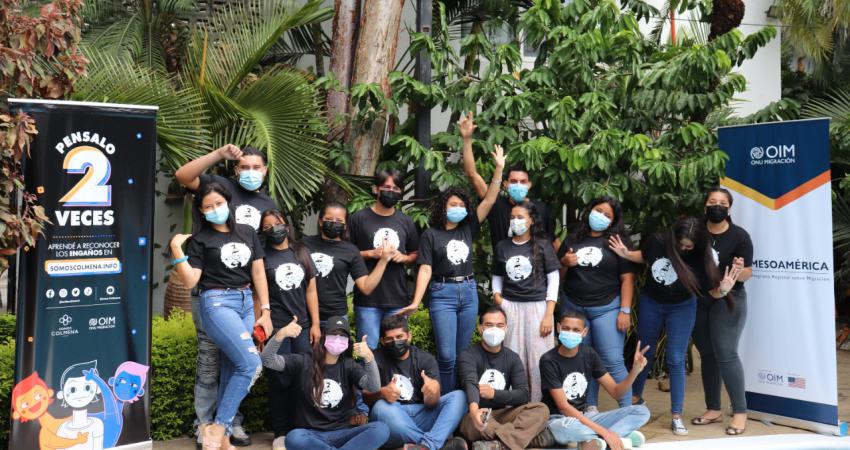
Migrants or people intending to migrate have had the opportunity to participate in community activities to reflect on the risks and alternatives of irregular migration, thanks to the communication for development campaigns implemented by the International Organization for Migration in 2021.
Under the principle that collectively built campaigns can help generate behavioral changes, 12 communities in 6 countries designed and now disseminate information campaigns that were adapted to the local context according to their particularities and needs. These campaigns are not satisfied with simply launching messages in mass media or social networks but have implemented community activities as a key element to trigger action.
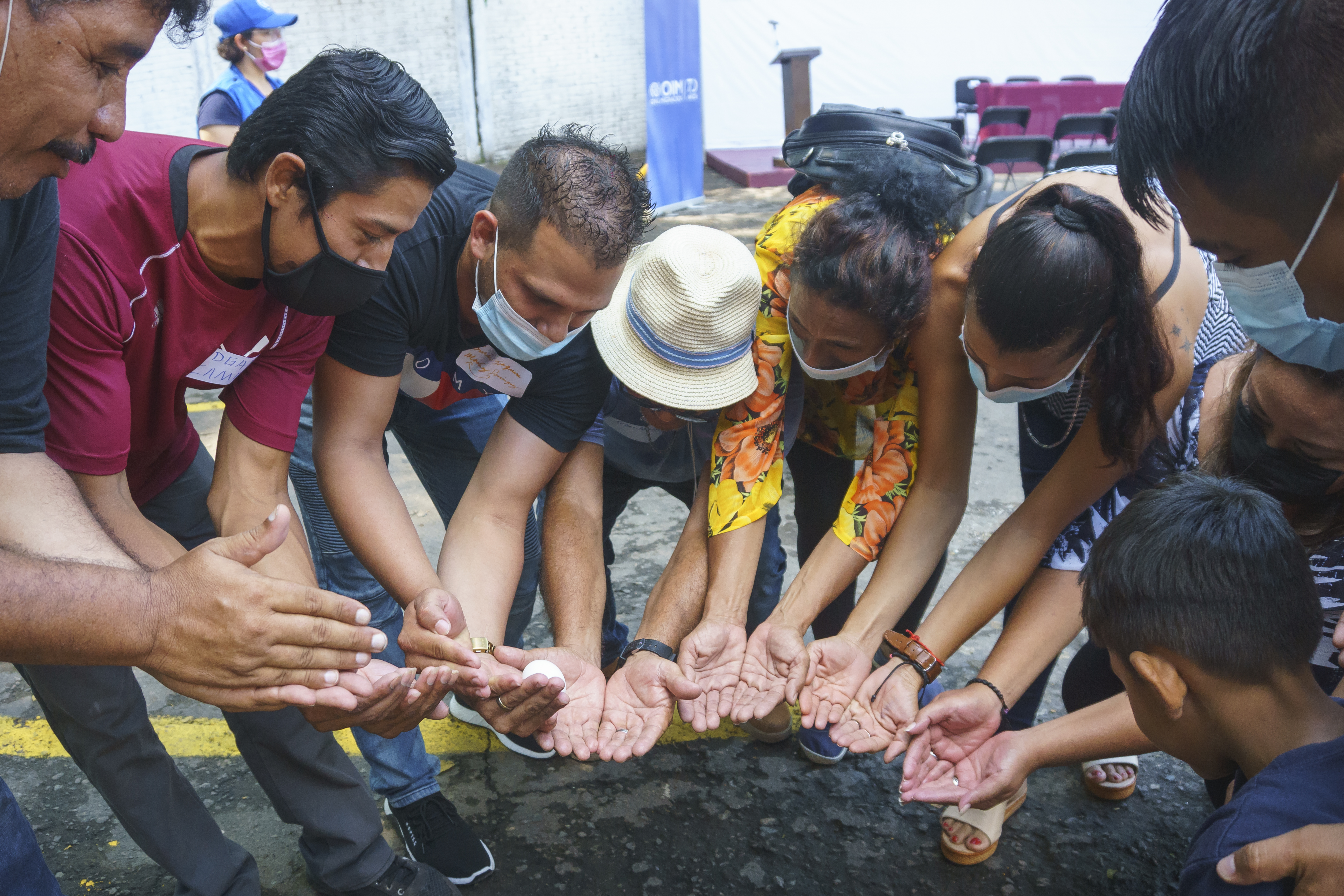
"Think Twice" is the name of the campaign active in Mexico, Guatemala, Honduras, El Salvador and Panama. It focuses on teaching people to identify the risks of scams related to migration, study and job offers.

"Integrating youth in the construction and dissemination of the campaign in La Chorrera is fundamental to strengthen knowledge and decision making, allowing this type of campaign to be more effective in motivating us to use reliable sources for making decisions and to avoid becoming a victim of human trafficking," explained Dennis Carranza one of the young people who participated in the creation of Piénsalo 2 Veces in Panama.
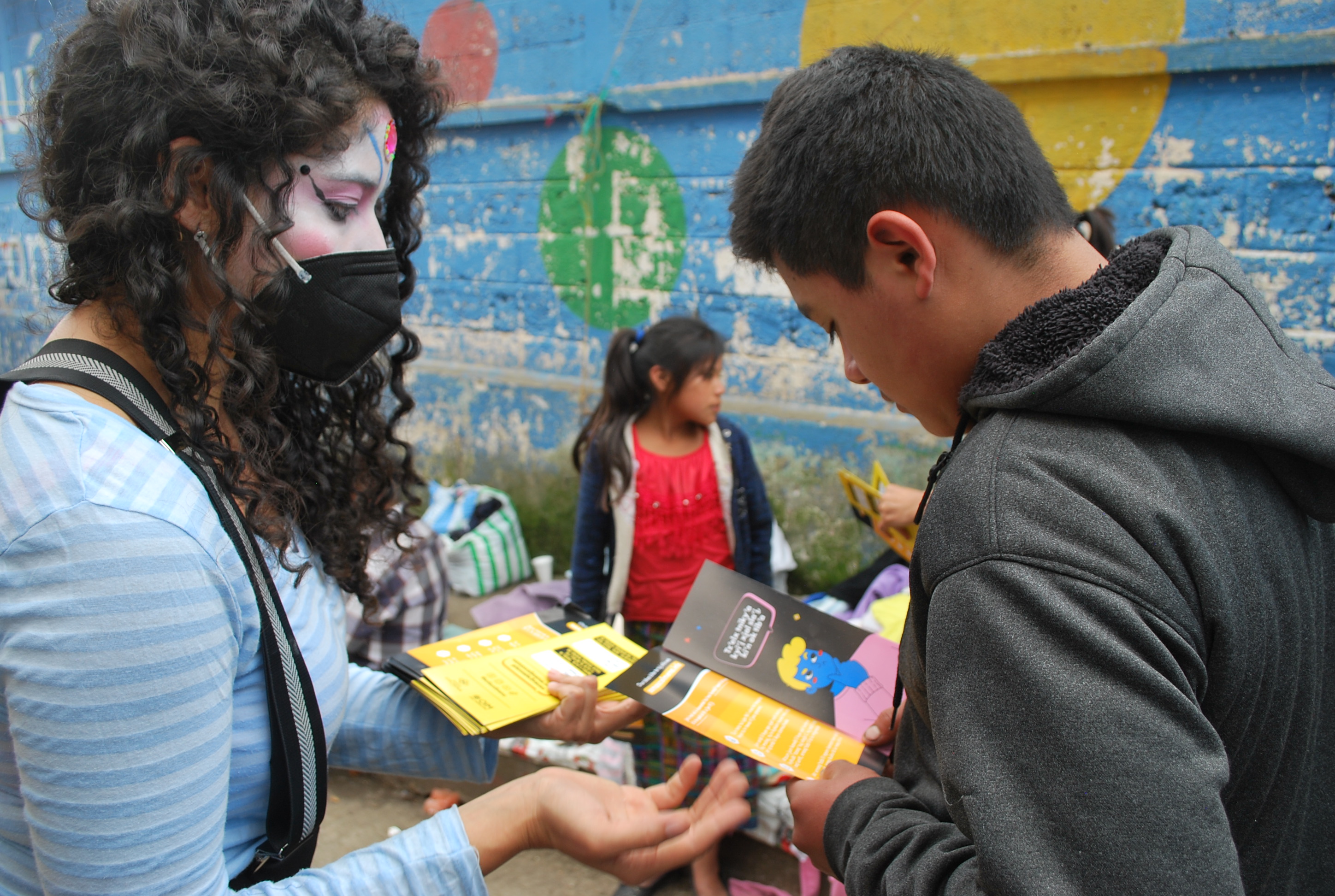
Civil organizations have also been very important in the dissemination process. In Mexico, for example, the key alliance with Consejo Ciudadano has made it possible to have a national human trafficking hotline to report cases of labor exploitation, whereas in Guatemala, strategic alliances with organizations such as Chispa Rural have made it possible for prevention messages to reach people in border communities. This outreach has been enhanced by the translation of campaign materials into Mayan languages.
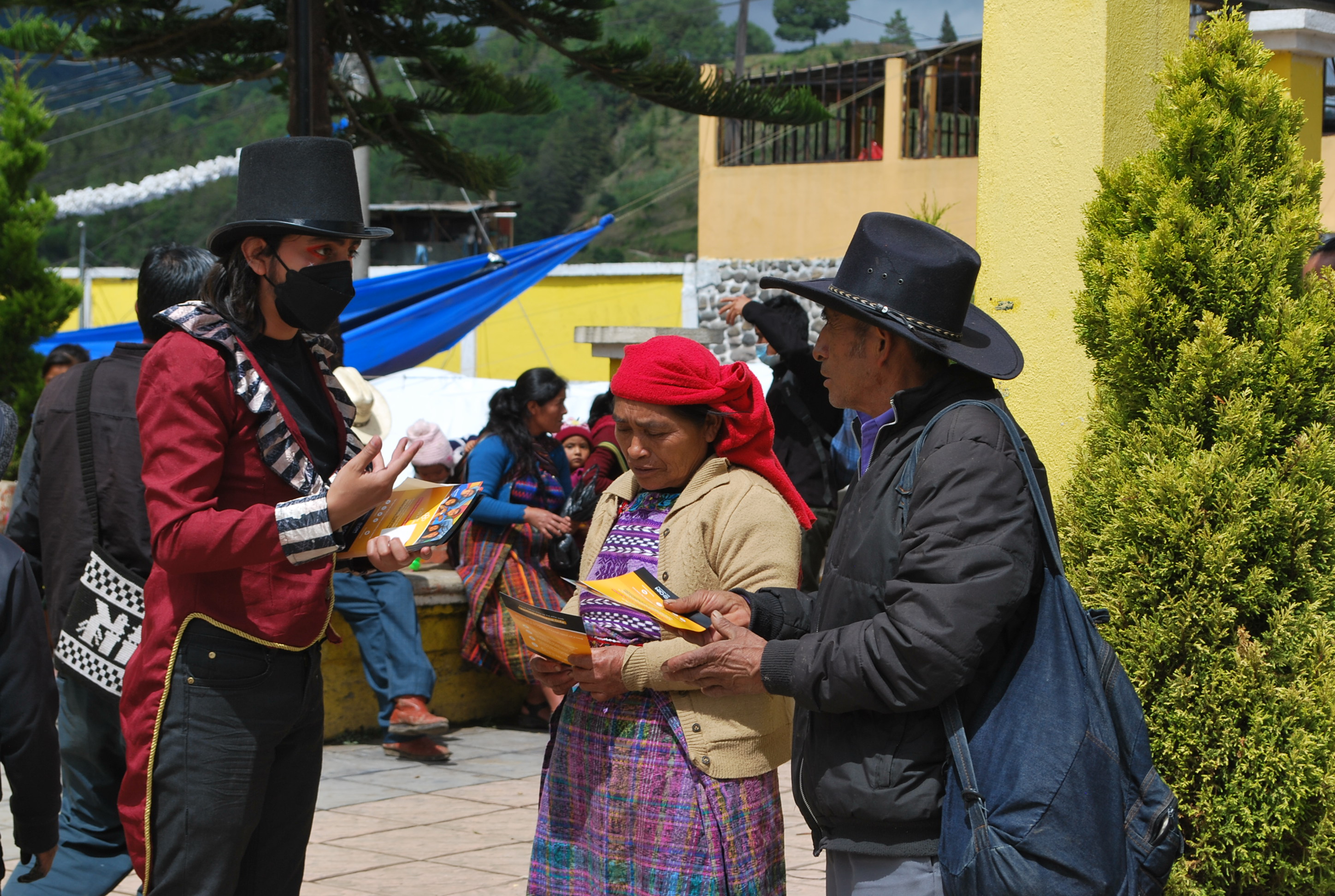
Beyond traditional activities such as talks and workshops, the campaigns seek to reach out to communities in other ways. Communication teams from Mexico and El Salvador, for example, have led successful community mural design processes reflecting the migrant experience and the multicultural character of border communities.

“I liked it, because it was a piece of myself”, expressed Jose Luis, one of the Central American youngsters who participated in the creation of the mural in the Los Laureles market, in Tapachula. “I am leaving my mark in the part of the wall where I painted, and I’m proud of it, because the day I’m gone... I’ll know I left a footprint somewhere”.
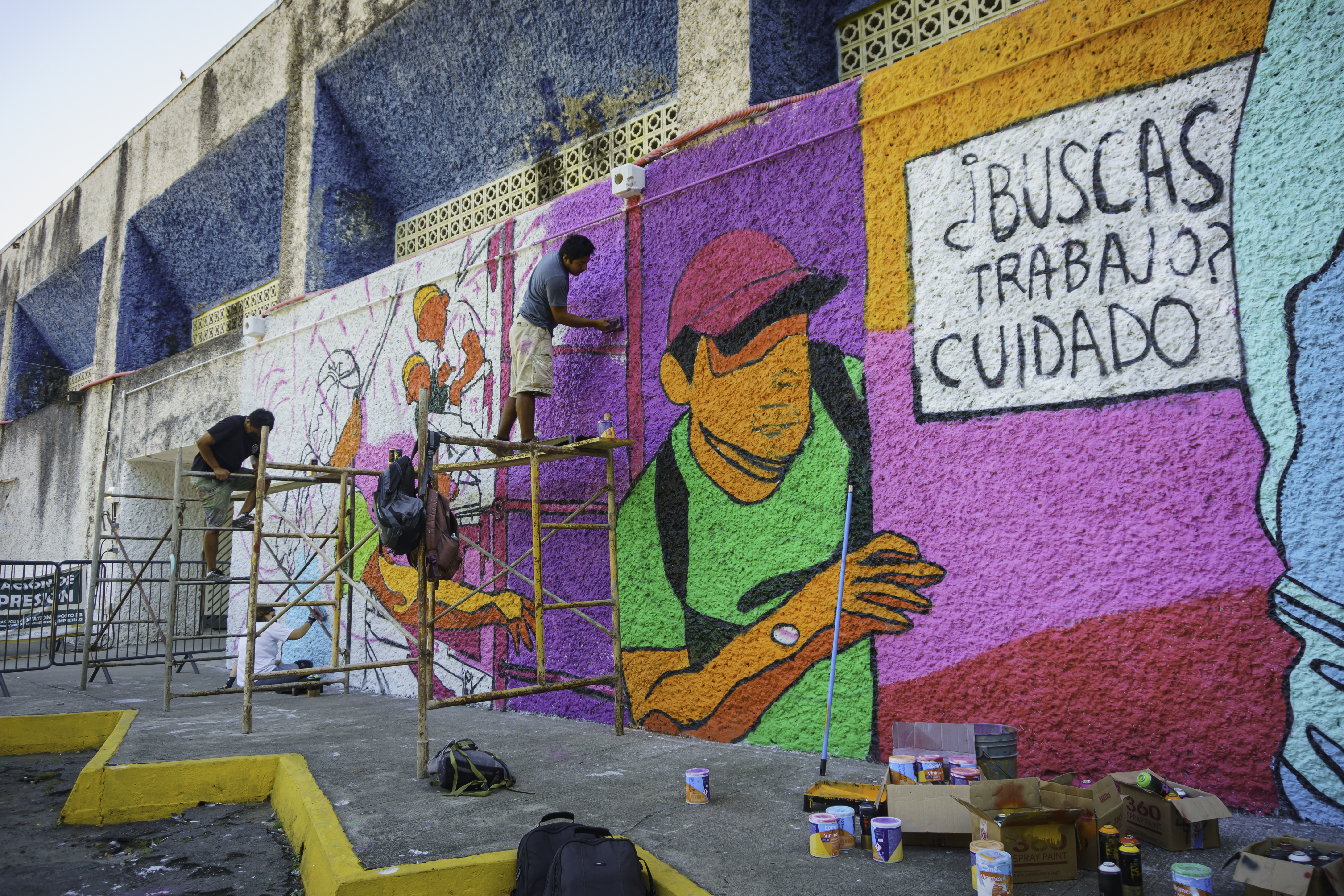
In Honduras, the local communication team held the first edition of the Color Run, in El Progreso, an event that brought together 52 people in an outdoor rally with different stations. Participants worked in teams to solve questions and challenges with a migration theme. As they moved between stations, colorful paint was another obstacle to overcome.
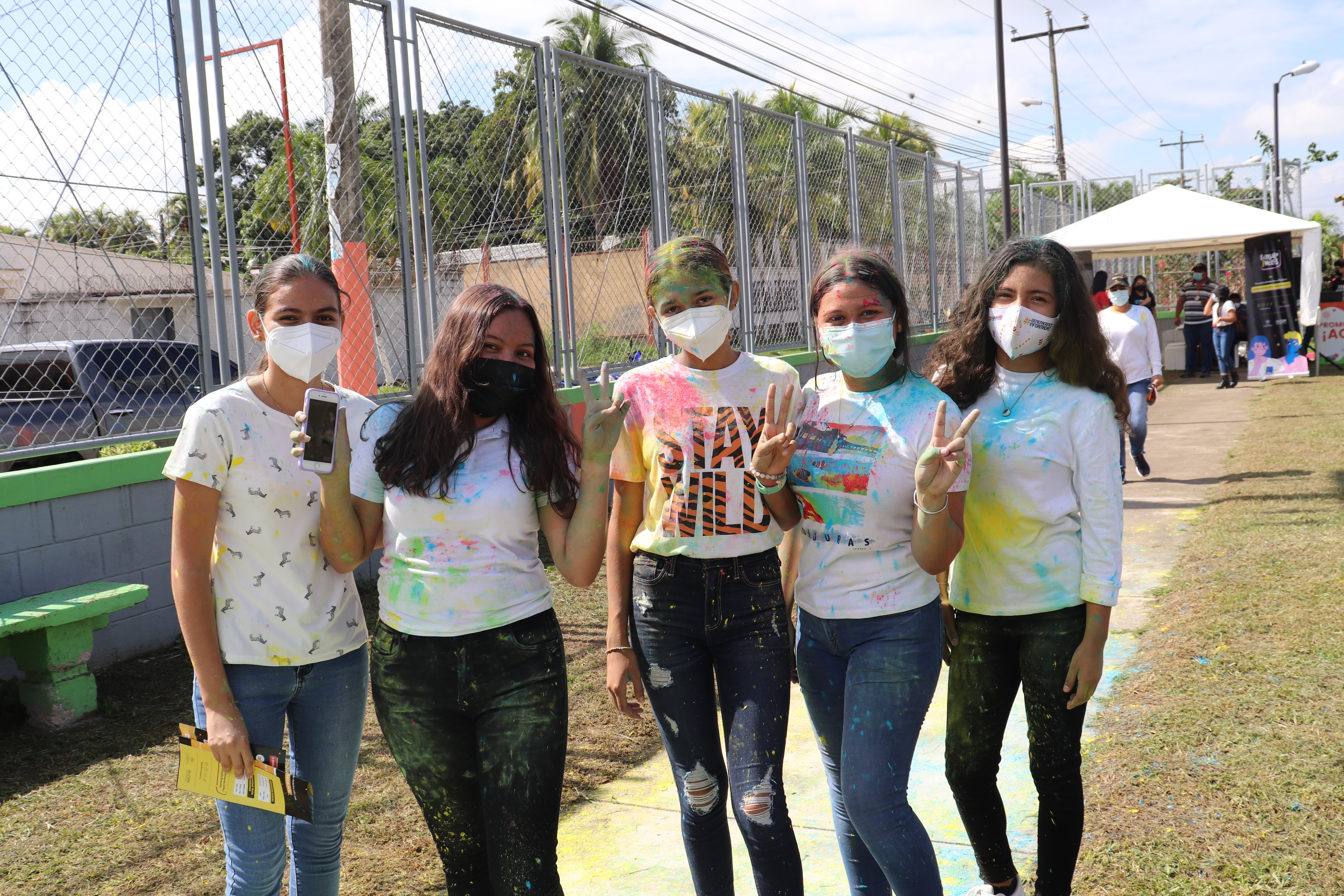
This activity was led by young people who were already part of the campaign in Honduras. They completed a training process on migration in order to become ambassadors of Piénsalo 2 Veces and develop activities to communicate what they have learned to their peers. 63 people have already been certified in Panama and Honduras, which is essential to ensure the sustainability of the campaign in the future.
"This has been a wonderful process, I have gained a lot of knowledge and clarified many concepts that our society has distorted, such as that migration is not 'illegal,' but 'irregular,'" explained Dina Ordóñez, a young Honduran ambassador for Piénsalo 2 Veces. "Now we can provide the information that has been imparted to us in a more creative, more entertaining way, so that the young volunteers can empower themselves with this important information", she added.

On the other hand, in Costa Rica, the “Updated Papers” campaign focuses on debunking myths and fears about immigration regularization. It addresses people who could regularize their status due to their relationship with Costa Rican sons, daughters or spouses. Many migrants have not completed this procedure due to the lack of accurate information circulating about the regularization process. As a result, they are unable to access decent job opportunities and social services provided by the State.
In addition to outreach materials posted in the community and in digital media, a hotline has been set up and has received more than 400 queries in the last three months. There have also been community activities called 'Migramóviles', which bring migration counseling sessions directly to the communities. More than 200 people have approached these events to start their regularization process and finally have their papers up to date.

“Think Twice” and "Updated Papers” campaings will continue to be implemented throughout 2022. New communities will be integrated into the activities in all countries. If you would like to learn more or be part of the community efforts, please write to somoscolmena@iom.int.
